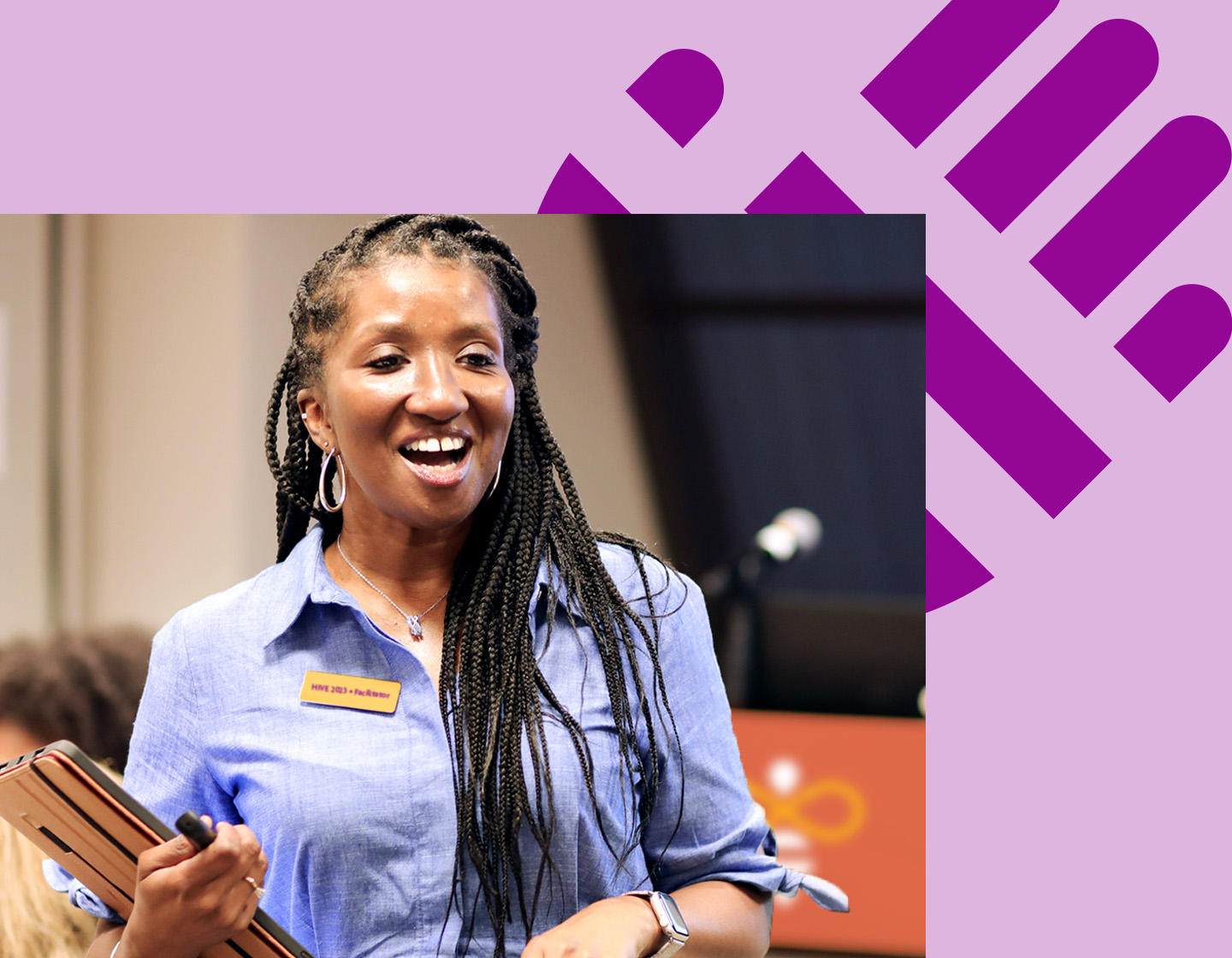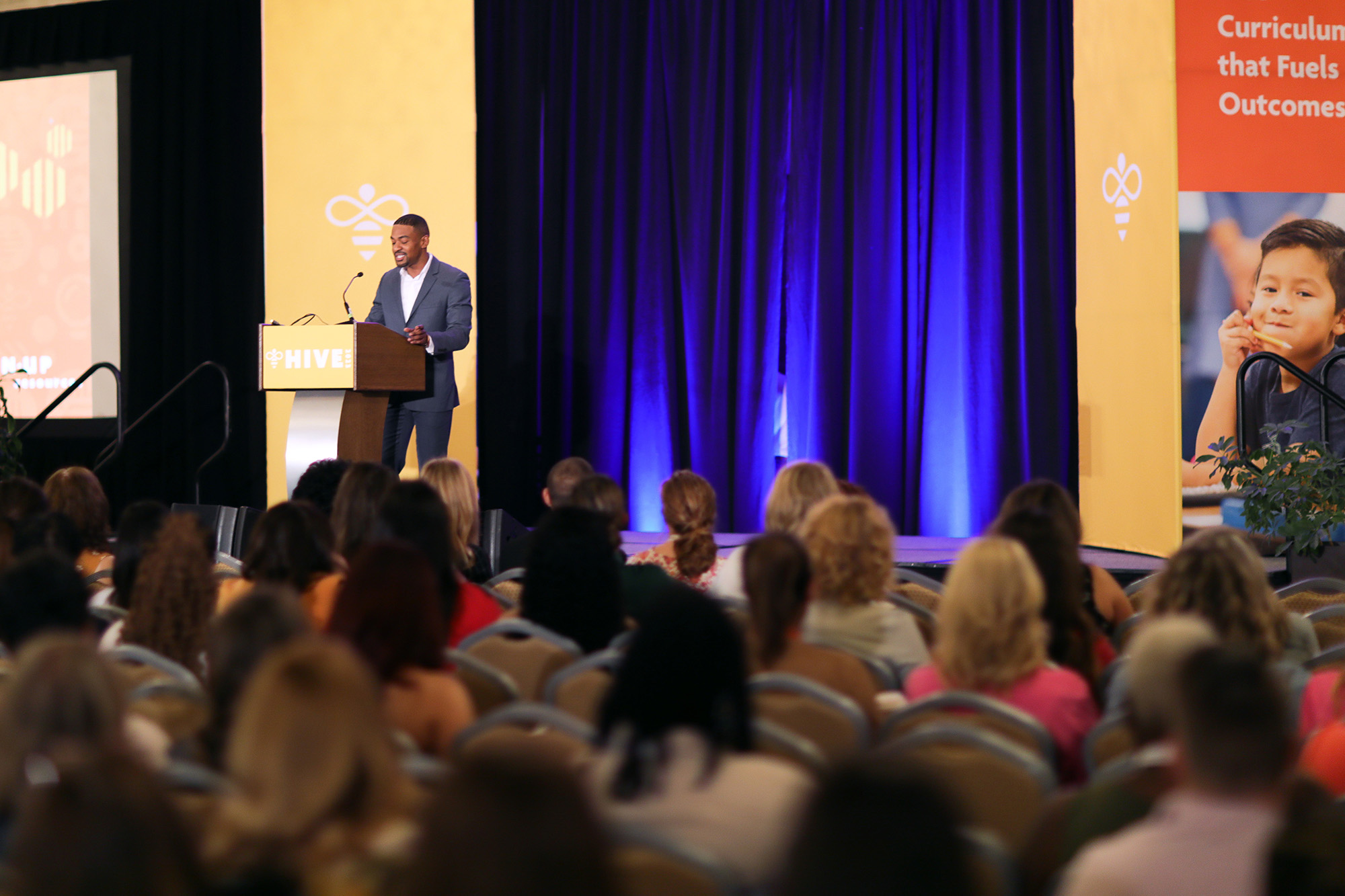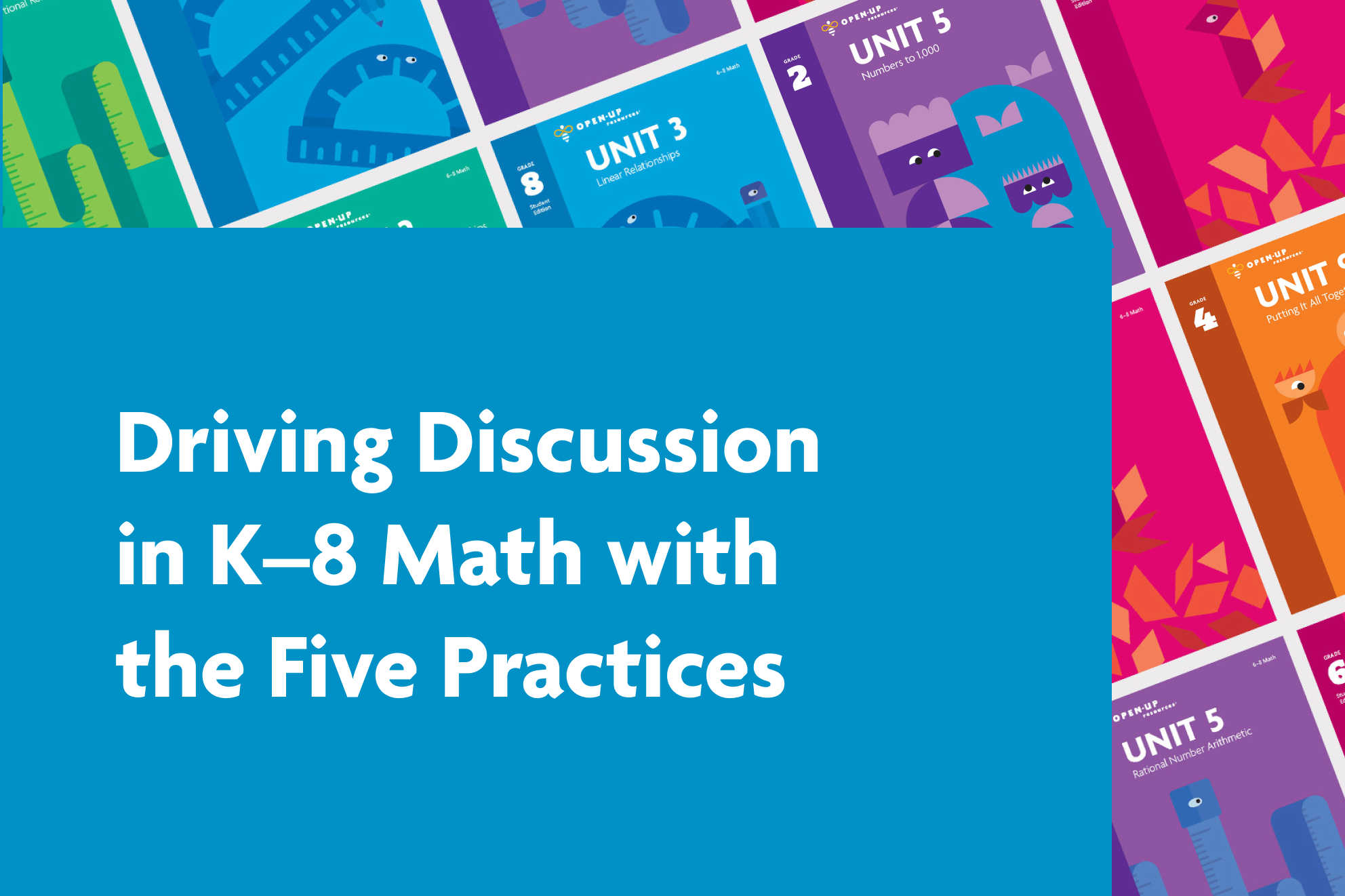In a recent “Math 4 All” podcast episode, hosts Molly Vokey and Dr. Heidi Sabnani spoke with Brooke Powers, Managing Director of Academics at Open Up Resources, about the importance of integrating math and English language arts (ELA) professional learning. The conversation highlighted important insights about how we can better support teachers across disciplines and ultimately improve student learning.
Powers, who began her career as an agriculture teacher before transitioning to mathematics, brings a unique perspective to this discussion. Her journey from experiencing math anxiety as a student to becoming a math educator, and now working in both math and literacy, demonstrates the potential for growth when we break down traditional subject-area barriers.
The conversation highlighted several key problems with our current approach to professional learning:
Subject Area Silos
The siloing of professional learning by subject area creates artificial barriers, particularly for K-5 teachers who teach multiple subjects. These educators often receive conflicting messages when attending separate math and ELA training sessions, or they’re forced to choose between them. As Dr. Sabnani noted, about 88% of elementary school teachers experience math anxiety, yet our current professional learning approach does little to address this challenge.
Overlooking Teacher Strengths
We’re missing opportunities to leverage teachers’ existing strengths. Rather than using an asset-based approach as we do with students, that builds on what teachers already do well in one subject area, we often treat professional learning as entirely separate experiences. For instance, an elementary teacher who excels at helping students construct arguments in ELA could apply those same skills to mathematical discourse, but our siloed approach rarely makes these connections explicit.
Different Subjects, Different Worlds
There are stark differences between math and ELA professional communities with little encouragement for crossover. The recent National Council of Teachers of English (NCTE) conference attracted approximately 7,500 attendees, including professors, authors, and educators from various specialties. In contrast, math conferences typically draw smaller crowds of 2,000-3,000 and tend to be more narrowly focused. This difference reflects the broader issue of how we’ve isolated mathematics education from other disciplines.
So, how do we improve professional learning to benefit teachers and students?
- Reorganize professional learning into two categories: pedagogical strategies and content-specific learning. This would help highlight universal teaching practices that work across subjects while still maintaining space for necessary content-specific training.
- Create more opportunities for cross-disciplinary collaboration. The recent joint NCTM-NCTE conference represents a step in this direction,although there are still opportunities to further integrate the sessions at that conference as it grows.
- Leverage the expertise of teachers across disciplines. For example, PE teachers could share strategies for incorporating movement, while art teachers could demonstrate connections between mathematics and visual arts.
- Focus on good teaching practices that transcend subject areas. As Powers noted, “When it boils down to the teaching and the professional learning, good teaching is good teaching.”
The conversation also addressed how our current approach affects students. Powers named that no child enters kindergarten hating numbers and shapes – these attitudes develop over time, potentially influenced by teachers’ own math anxiety. By better supporting teachers across disciplines, we might prevent the development of negative student attitudes.
The group acknowledged that implementing these changes requires structural support. Individual teachers are already doing their best with limited time and resources. The decision-makers who control schedules, design professional learning, and make policy decisions are responsible for integration.
Looking ahead, all three educators expressed hope for continued progress in breaking down disciplinary silos. The joint NCTM-NCTE conference represents an important first step, though future iterations could focus more on true integration rather than parallel tracks of math and ELA sessions.
Powers concluded with a call to action for administrators and educational leaders to consider how they might better integrate math and ELA professional learning in their schools and districts. She emphasized that this integration isn’t just about efficiency – it’s about creating better learning experiences for both teachers and students.
This conversation highlights a crucial shift needed in K-12 professional learning. By breaking down artificial barriers between disciplines and focusing on universal good teaching practices, we can better support teachers and ultimately improve student learning across all subject areas. The challenge now lies in creating structures and opportunities that facilitate this integration while respecting teachers’ time and existing expertise.
As we move forward, this integration of professional learning across disciplines could help address persistent challenges in education, from math anxiety to student engagement. The key lies in recognizing that good teaching transcends subject areas and that we have much to learn from each other across disciplinary boundaries.
Powers’ insights come to life in Open Up Resources Professional Learning offerings. From asynchronous courses you can do at your own pace to tailored, in-person sessions, our Professional Learning team prioritizes supporting teachers with the tools they need to build classrooms where every student can achieve their highest potential. To learn more about how OUR professional learning can support your classrooms, contact us.













